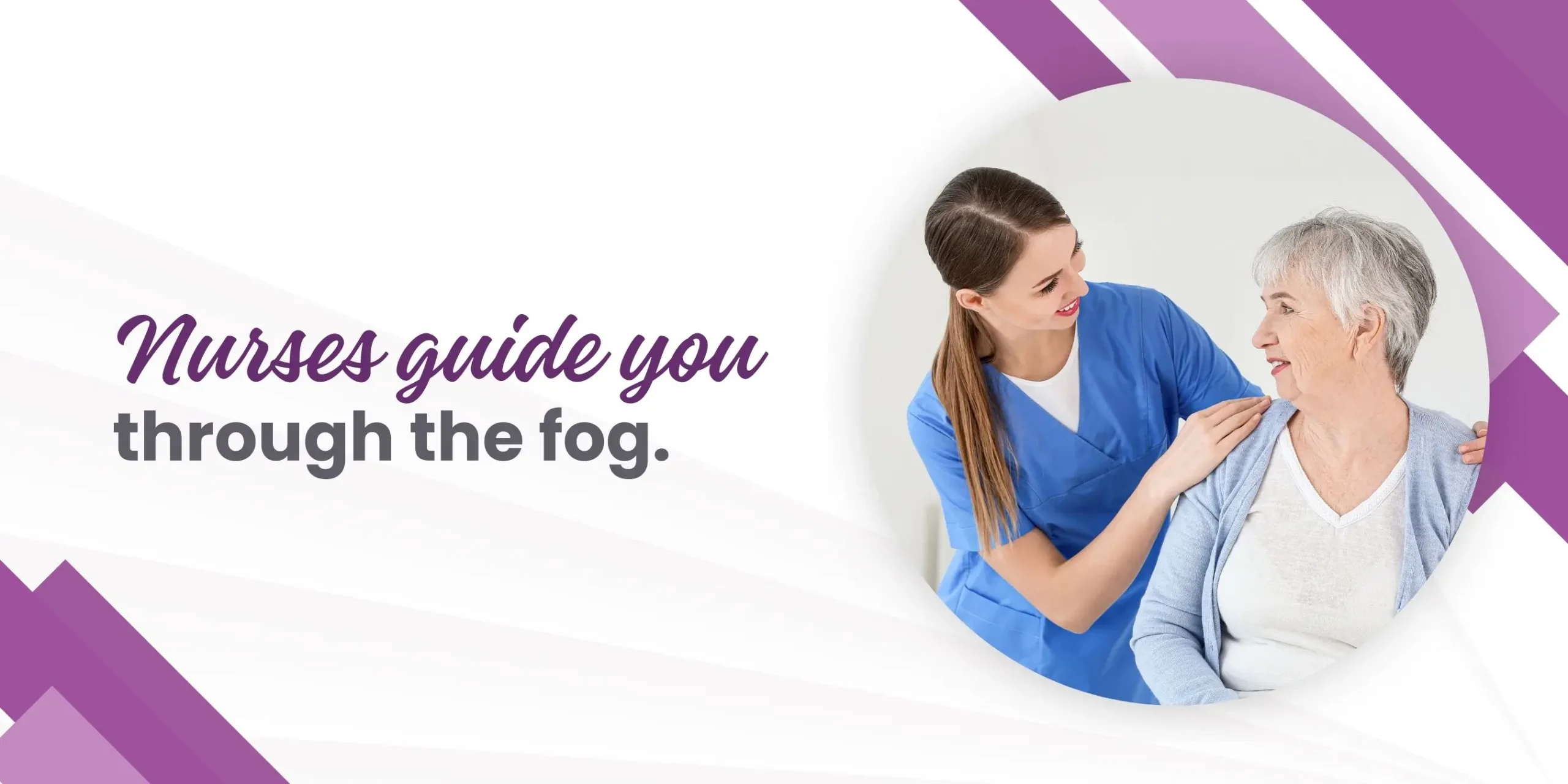 It usually begins with something barely noticeable. A tremor of the hand in pouring tea. Walking a bit more slowly to the mailbox. A voice that is a little softer than usual. These subtle things are easy to brush off, especially as one gets older, but are also some of the first signs of Parkinson’s disease.
It usually begins with something barely noticeable. A tremor of the hand in pouring tea. Walking a bit more slowly to the mailbox. A voice that is a little softer than usual. These subtle things are easy to brush off, especially as one gets older, but are also some of the first signs of Parkinson’s disease.
Parkinson’s is a progressive neurologic disorder affecting movement and coordination. Because it progresses slowly and occurs differently in every person, it goes undetected by many. But identifying those warning signs early can mean the difference between an excellent life and a poor one. If given the proper kind of help, like that of a trained nurse, Parkinson’s patients can decrease their symptoms, improve their quality of life, and take control of their destiny.
These are ten of the initial symptoms of Parkinson’s disease to look out for, and how a nurse can provide assistance on a daily basis along the way.
1. Tremors or Shaking
Shaking of the fingers, hands, or chin early on, particularly when not active, is one of the earliest and most frequent indicators. They are also caused by stress, fatigue, or hypoglycemia, but steady or increasing shaking could require more attention.
How the nurse can help: A nurse can monitor the progression of tremors, help with exercise to improve coordination, and help with taking medicines at consistent time intervals to minimise symptom flare-ups.
 2. Small Handwriting (Micrographia)
2. Small Handwriting (Micrographia)
Do you notice that handwriting becomes smaller and more contracted than it once was? Micrographia is a symptom that can appear as Parkinson’s begins to impact fine motor skills.
How the nurse can help: A nurse can help write occupational activity or activity therapy orders to maintain hand mobility and maintain everyday function.
3. Loss of Smell
Diminished sense of smell, especially if unexplained by allergy or disease, may be one of the earliest manifestations of Parkinson’s. It may appear years before motor symptoms are evident.
How the nurse can help: Nurses can help by tracking these subtle changes longitudinally and scheduling early diagnostic tests with neurologists or GPs.
4. Sleep Disturbances
Restless turning, thrashing, or even kicking at night may be a sign of an illness called REM Sleep Behaviour Disorder, found in people who have early Parkinson’s.
How the nurse can help: Physical and mental well-being may be affected by sleep problems. A nurse can examine habits, recommend restful habits, or help implement doctor-approved systems for better rest.
5. Muscle or Limb Stiffness
It is normal that certain people get stiffness in their muscles or that they have trouble swinging their arms freely when walking. This change is sometimes confused with arthritis or aging, in general.
How the nurse can help: Nurses help with mobility routines, provide safe transfer and mobility throughout the home, and can help with gentle stretching exercises with the supervision of a physiotherapist.
6. Changes in Facial Expression (Masked Face)
Parkinson’s can delay the normal facial muscle movement, causing a person to be less expressive or look as though they have a sad or serious face even when they are not.
How the nurse can help: A well-trained neurology nurse can help with emotional and social health, support in maintaining communication, and offer techniques to improve facial muscle movement.
7. Soft or Low Voice
If other people frequently ask you to repeat yourself or inform you that you talk softer than usual, it may be a sign of a voice volume change due to Parkinson’s.
How the nurse can help: A nurse can help with voice-strengthening exercises, refer the patient to speech pathologists, or help implement equipment that facilitates easier communication.
8. Dizziness or Fainting
Sudden loss of balance on standing may be a sign of hypotension, which is common among Parkinson’s patients. It might be particularly observed in the morning or after meals.
How the nurse can help: A nurse can measure vital signs, counsel regarding safe transfer from bed or chair, and support GPs in the control of blood pressure-related symptoms.
9. Constipation
Parkinson’s has a fondness for affecting the gut and will often cause constipation many years before the movement symptoms become evident. If it’s chronic or treatment-resistant, then it may require more intense investigation.
How the nurse can help: Nurses play a key role in controlling diet, fluids, and activity to encourage gastrointestinal well-being. Nurses can also assist in the delivery of any bowel care regimens that have been prescribed by a GP.
10. Slow Movements (Bradykinesia)
You may find that movements slow down, or as though your feet are dragging. This overall slowing can impact daily activities such as buttoning a shirt, brushing teeth, or walking through a doorway.
How the nurse can help: A nurse can help with activities of daily living, promote safe mobility, and assist with exercises that promote agility and independence.
The Nurse’s Role in Parkinson’s Care
Having a nurse on staff for Parkinson’s care makes all the difference. Nurses are trained to monitor the motor and non-motor symptoms of the disease and deliver consistent and responsive care.
Some of the ways through which a nurse takes care of people suffering from Parkinson’s disease are as follows:
- Control over medicines so that the medicine is taken appropriately and at the correct time
- Assistance with daily activities like dressing, bathing, and cooking
- Mobility and preventing falls by having healthy habits and home adaptations
- Observation of symptoms and informing the health care team about changes in symptoms
- Emotional support to the individual and the family
Education and empowerment to empower people to have a better knowledge of their illness and a role in the care management of their own
Nurses do not just provide care. They build relationships, reassure, and allow people to remain in charge of their lives.
When to Get Help
Early detection of Parkinson’s disease is not a diagnosis, but it’s a reason to discuss this with your physician. Treating early will get treatment underway sooner, and this can decrease the speed at which symptoms deteriorate and improve quality of life in the long run.
Having a nurse as part of the team early on can make the difference. With proper guidance, daily life is still possible, safe, manageable, and fulfilling.
Conclusion
Living with Parkinson’s disease is a matter of learning how to adapt and get ready for what lies ahead. But nobody has to go it alone.
Ixora Care offers experienced and caring nursing care for people with Parkinson’s. From dignity, confidence, and comfort, our nurses enable everyday life and empower it.
To learn how we can help you or a loved one, contact Ixora Care today. The earlier the care, the stronger the foundation on which to build for the journey ahead.

